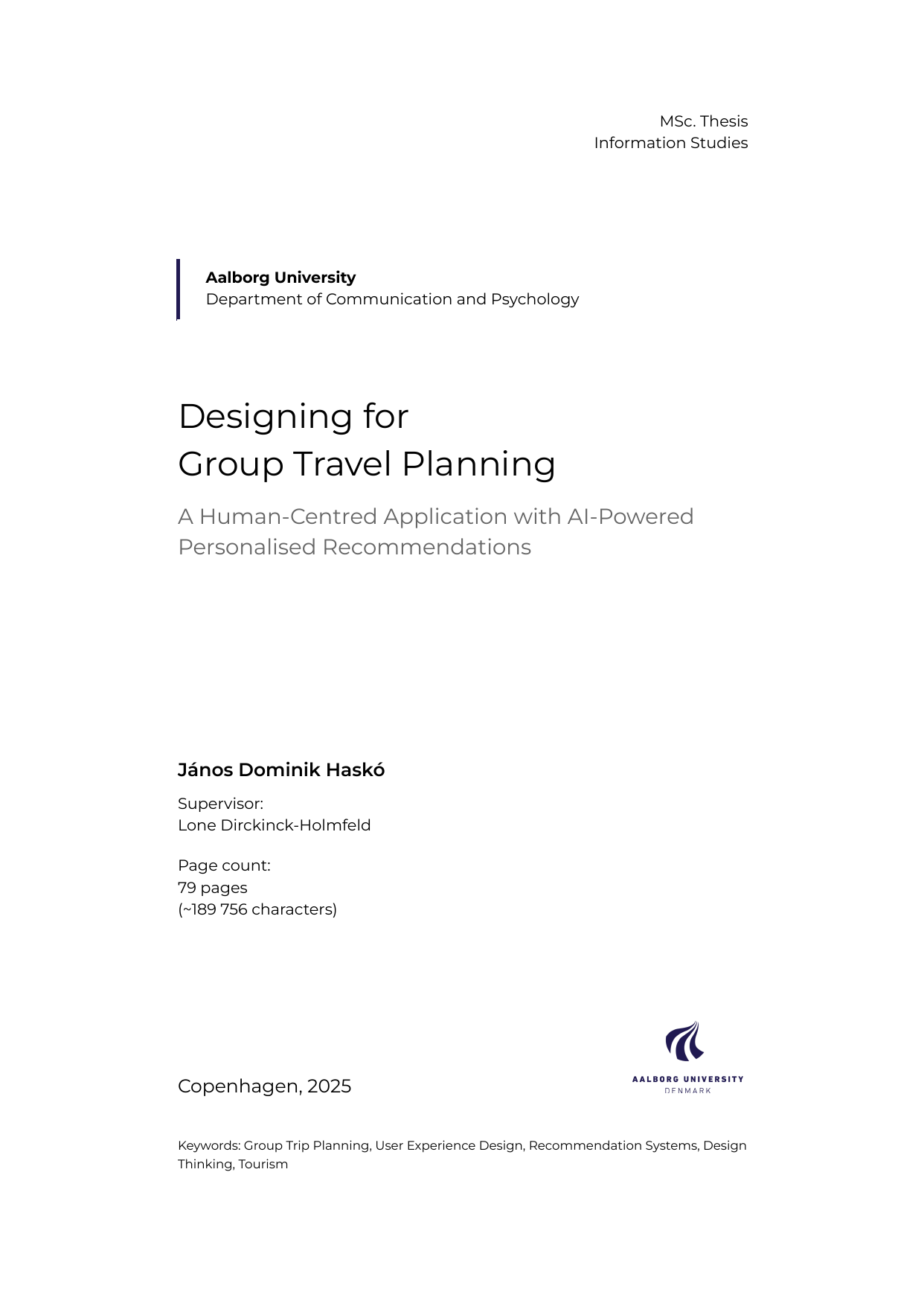
Designing for Group Travel Planning: A Human-Centred Application with AI-Powered Personalised Recommendations
Author
Term
4. term
Publication year
2025
Submitted on
2025-08-07
Pages
79
Abstract
This thesis investigates how human-centred design can enhance the digital group trip planning experience for young adults through the integration of artificial intelligence and personality-based recommendations. Grounded in the Design Thinking framework, the study applies a mixed-methods approach including qualitative interviews (N=6), a quantitative survey (N=94), and usability testing (N=8) to identify key user pain points and inform the design of a digital planning application. The proposed solution, a Group Trip Planning Hub, combines collaborative features such as availability coordination with a novel AI-powered, personality-aware itinerary recommendation system. By leveraging prompt abstraction, the application enables natural-language-based personalisation without requiring users to write prompts themselves. Usability testing demonstrated high task success, ease of use, and a clear user preference for personalised over generic itineraries. The findings contribute to the fields of Human-Computer Interaction, UX, and tourism technology by demonstrating how hybrid GUI–CUI systems and personality-aware recommender strategies can reduce planning friction. The study also highlights ethical considerations in AI transparency and data use. While the solution shows promise, limitations include simulated group setting and a lack of longitudinal testing. This thesis offers actionable design insights for AI-integrated planning tools and suggests directions for future research in ethical, personalised, and collaborative travel technologies.
Documents
